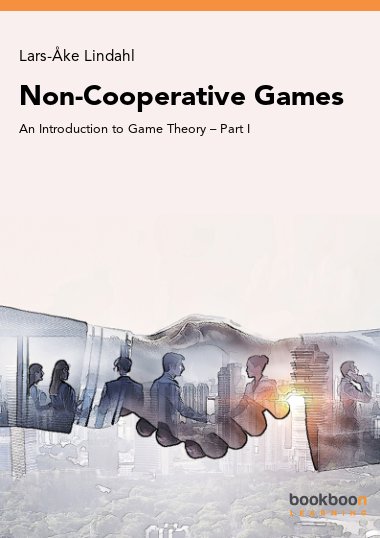Part I of An Introduction to Game Theory gives a thorough presentation of the non-cooperative theory at a level suitable for undergraduate students. The book contains classical results of strategic games and extensive games with and without perfect information and in addition also a brief introduction to utility theory. Precise definitions and full proofs of all results are given. The book also contains plenty of exercises with answers and hints. Knowl- edge of Mathematics corresponding to one semester of university studies is required.
About the author
Lars-Åke Lindahl obtained his mathematical education at Uppsala University and Institut Mittag-Leffler and got a Ph.D. in Mathematics in 1971 with a thesis on Harmonic Analysis. Shortly thereafter he was employed as senior lecturer in Mathematics at Uppsala University, where he remained until his retirement in 2010 and for more than 20 years served as chairman of the Math. Department.
He has given lectures in a variety of mathematical subjects such as Calculus, Linear Algebra, Fourier Analysis, Complex Analysis, Convex Optimization, Game Theory and Probability Theory, and he has also written several textbooks and compendia. After his retirement, he has been a consultant to Al Baha University, Saudi Arabia, with a mission to assist in the development of their master's program in Mathematics.

